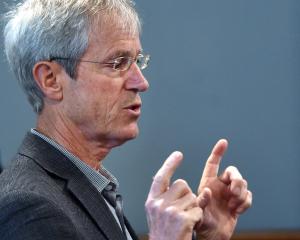Mr Parker is expected to outline how a Labour-led government will lower the value of the New Zealand dollar, along with his ideas for revamping New Zealand's monetary policy framework.
BNZ senior economist Craig Ebert said one could argue about whether the Labour party would gain power at the September 20 electorate.
However, it was important to note Opposition thinking regarding monetary policy, given the tendency for democratically-elected governments to get booted out after a long enough time at the helm.
Although not sure what Mr Parker's speech would contain, Mr Ebert said he had gleaned some information from public remarks made by the MP in recent times.
If the Reserve Bank was instructed to adopt a dual mandate, the secondary objective would probably not be employment, as in the United States.
It could be something aimed at reducing the current account deficit, raising the national savings rate and taking pressure off the New Zealand dollar, Mr Ebert said.
''Related to this, it looks as though Labour will give the Reserve Bank more tools to do its augmented job. This could well mean Labour will endorse more prudential-type tools as a means of trying to improve the country's savings ratio.
''Parker has already expressed a dislike of the loans-to-value policy recently introduced by the Reserve Bank.''
The Labour-proposed monetary framework might also encourage, more directly, the Reserve Bank to intervene in the dollar, he said.
The central bank governor could well be maintained as the single decision maker, rather than moving to a board decision-making process.
Provided Labour left the governor as the single decision maker, retained consumer price index (CPI) inflation as the primary target of policy and maintained the Reserve Bank's independence, proposed changes might end up as being more about politicking than truly having an impact on outcomes, Mr Ebert said.
''Then again, we'll also need to be sure the operational details of any policy change will not lead to more problems than they are designed to solve. We'll be interested to see what he announces and his reasoning behind it.''












